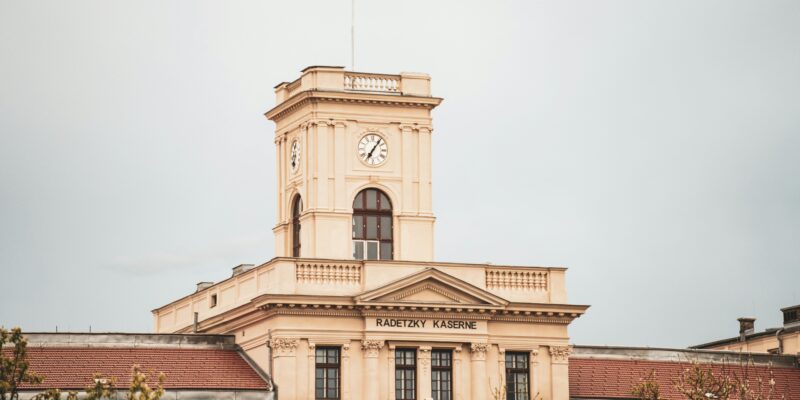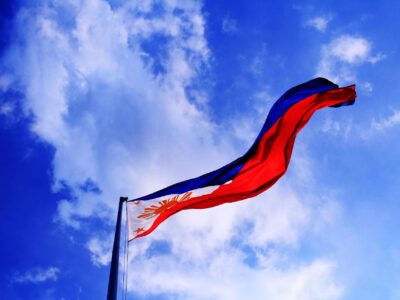05-10-2024
Innocenti Chiara
Europe Researcher,
Global Human Rights Defence.
Vienna (AUSTRIA), October 1st – On September 29th, parliamentary elections in Austria were held, resulting in significant gains for Austria’s far-right Freedom Party (FPÖ). These elections, convened every five years, aim to renew the members of the lower chamber of the Austrian Parliament, the Nationalrat (The National Council), to ensure direct representation of the will of the people.
For the first time in several years, FPÖ garnered 28.9 percent of the ballots, surpassing the conservative People’s Party (ÖVP) by almost three percentage points and securing 57 seats in the 183-seat parliament. While this result falls short of a majority, it necessitates the immediate creation of a coalition. However, the current political landscape is far from united, displaying division and contention. Incumbent Chancellor Karl Nehammer of the ÖVP openly rejected any possibility of collaborating with the newly elected FPÖ members, stating that it is “impossible to form a government with someone who adores conspiracy theories”. These sentiments have created significant challenges for future political cooperation and the potential effectiveness of the new government.
The central issues in this election highlight the ongoing discussions within the European Union around critical topics like the substantial migration crisis, a fragile economy, and the ongoing conflict in Ukraine. FPÖ’s leader Herbert Kickl has emphasised the urgent need for the construction of a “Fortress Austria,” advocating for nationalistic migration policies that he claims will restore peace, security, and prosperity. This rhetoric and approach signal a shift towards an illiberal democracy, similar to the ideology championed by Viktor Orban, which has always faced widespread criticism from both European institutions and human rights organisations.
The rise of populism in Austria is part of a broader trend across Europe, with political shifts in countries such as Italy, Germany, and France prompting a reevaluation of positions on key areas within the EU Agenda. Leaders like Marine Le Pen from the Rassemblement National (RN), Bjoern Hoecke from the far-right Alternative for Germany (AfD), and Matteo Salvini from the Italian League have celebrated the FPÖ’s electoral success, viewing it as a historic moment poised to reshape EU policies.
In the meantime, opposition to the FPÖ’s rise has been vocal and widespread across the whole country. Austrians took to the streets, marching towards Parliament with placards reading “Nazis, get out of parliament,” and “Don’t let Nazis govern, and never let them march,” openly denouncing their rejection of the election results. There is particular concern for vulnerable groups, such as migrants, refugees, and the LGBTIQIA+ community. Some protesters have drawn parallels between FPÖ’s rhetoric and Hitler’s National Socialist Party, raising fears of a regression in Austria’s broader commitment to human rights principles.
The implications for human rights remain to be seen, but early signs suggest a troubling trajectory: the concept of “remigration”, promoted by the FPÖ’s, could lead to systematic violations of the right to seek asylum, the prohibition of refoulement, and the protection of family unity, as well as legitimising pushbacks and complicating access to citizenship and social integration.
As these political developments unfold, it is crucial to remain vigilant in safeguarding the fundamental rights and freedoms that underpin democratic societies.
Sources and Further readings:
Moens, B., Vinocur, N., (2024, October 1). The far right won Austria’s election. Brussels doesn’t care. The Politico. Retrieved on October 2, 2024, from:
https://www.politico.eu/article/brussels-europe-populism-far-right-austria-election-herbert-kickl-freedom-party-fpo/.
Graham, D., (2024, September 29). Austria’s far-right election victory delights Europe’s right-wing parties. The Reuters. Retrieved on October 3, 2024, from:
https://www.reuters.com/world/europe/european-right-wing-parties-revel-election-victory-austrias-far-right-2024-09-29/.
Kirby, P., (2024, October 1). Far right in Austria ‘opens new era’ with election victory. The BBC. Retrieved on October 3, 2024, from:
https://www.bbc.com/news/articles/c8rdygy5888o.
(2024, September 30). Salvini esulta per la vittoria di Fpo in Austria. Ma Tajani: “Respingere i rigurgiti neonazisti”. Il Foglio. Retrieved on October 3, 2024, from:
https://www.ilfoglio.it/politica/2024/09/30/news/salvini-esulta-per-la-vittoria-di-fpo-in-austria-ma-tajani-respingere-i-rigurgiti-neonazisti–6996074/.








Comments